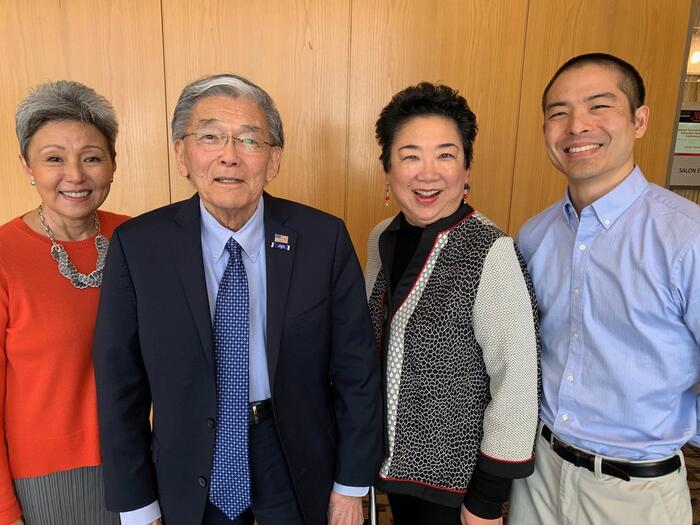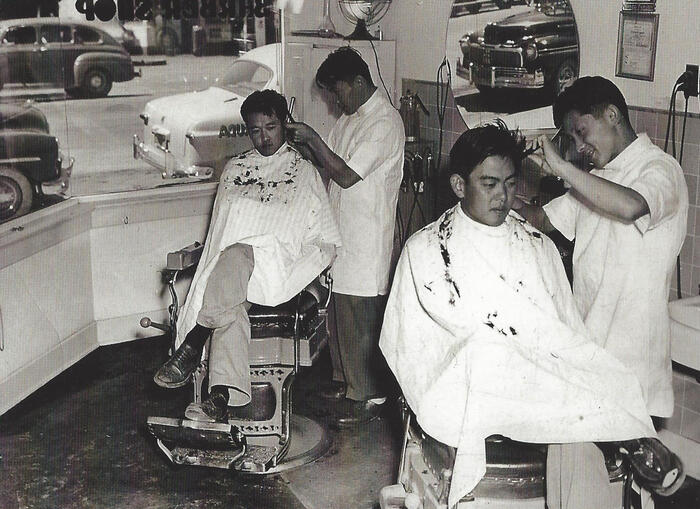91│į╣Ž continues to expand its regional programs for high school students in Japan. This year marked the launch of the Stanford e-Kobe program, which joins the previously established programs, Stanford e-Hiroshima, Stanford e-Kawasaki, Stanford e-Oita, and Stanford e-Tottori.
These online courses are a collaboration between 91│į╣Ž and local government and school officials in Japan and challenge students to think critically about global themes related to U.S. society and culture and U.S.ŌĆōJapan relations.
All five courses have now finished their 2021ŌĆō2022 term. This summer, two top students from each program will present their final research projects and be honored at a virtual event hosted by 91│į╣Ž, 91│į╣Ž. Congratulations to the ten honorees below on their excellent academic achievement!
Stanford e-Hiroshima (Instructor Rylan Sekiguchi)
Student Honoree: Minori Imai
School: Hiroshima Prefectural Kuremitsuta High School
Project Title: All Lives Are Important
Student Honoree: Yui Miyake
School: Hiroshima Prefectural Hiroshima High School
Project Title: U.S. Prison System: How the CountryŌĆÖs History of Racial Inequality Drives the High Rate of Incarceration in America
Stanford e-Kawasaki (Instructor Maiko Tamagawa Bacha)
Student Honoree: Sayaka Kiyotomo
School: Kawasaki High School
Project Title: How Can We Improve Junior and Senior High School English Education in Japan?
Student Honoree: Anne Fukushima
School: Tachibana High School
Project Title: How Are Invisible Disorders Accepted in the United States and Japan?
Stanford e-Kobe (Instructor Alison Harsch)
Student Honoree: Nonoha Toji
School: Kobe University Secondary School
Project Title: How to Foster Entrepreneurship in School Days: Between U.S. and Japan
Student Honoree: Cullen Hiroki Morita
School: Kobe Municipal Fukiai High School
Project Title: The Different Work-Life Balance in Japan and America
Stanford e-Oita (Instructor Kasumi Yamashita)
Student Honoree: Rina Imai
School: Usa High School
Project Title: Learn 91│į╣Ž War and Peace Through the Naval Air Base Bunkers in Oita
Student Honoree: Yuki Nojiri
School: Hofu High School
Project Title: I Want to Live in the Second House of the Three Little Pigs
Stanford e-Tottori (Instructor Jonas Edman)
Student Honoree: Sakurako Kano
School: Tottori Keiai High School
Project Title: Being Proactive
Student Honoree: Yuki Yamane
School: Tottori Nishi High School
Project Title: The Effect of Collectivism and Individualism on Education
The 91│į╣Ž staff is looking forward to honoring these ten students in a virtual ceremony on August 9, 2022 (August 10 in Japan). Each student will be given the opportunity to make a formal presentation to members of the Stanford community, the Consulate General of Japan in San Francisco, and the Japanese community in the San Francisco Bay Area.
91│į╣Ž also offers online courses to U.S. high school students on Japan (Reischauer Scholars Program), China (China Scholars Program), and Korea (Sejong Korea Scholars Program), and online courses to Chinese high school students on the United States (Stanford e-China) and to Japanese high school students on the United States and U.S.ŌĆōJapan relations (Stanford e-Japan).
To stay informed of 91│į╣Ž news, and follow us on , , and .





























